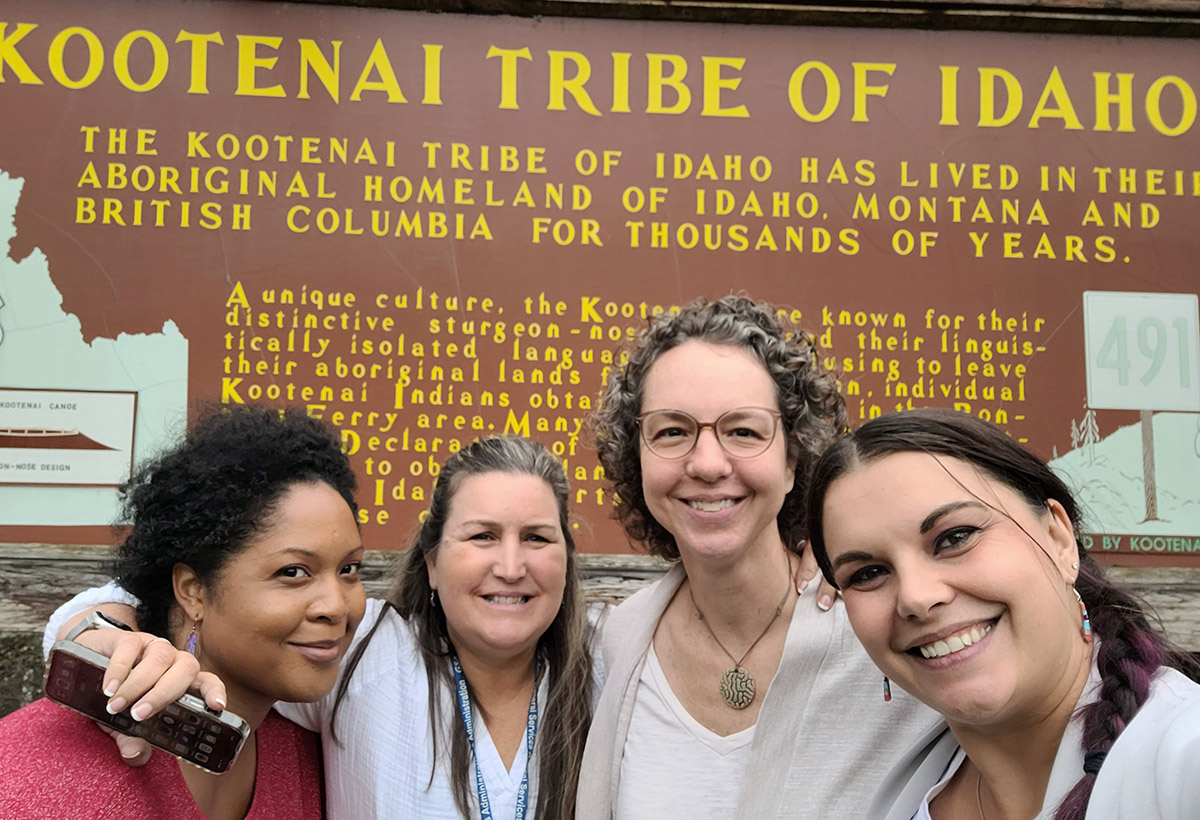
Boosting Native businesses, tribes through the federal marketplace
Post filed in: Acquisition | Equity | LPOEs
Most people haven’t heard that a Cherokee Nation company helped lead the evacuation of civilians out of Afghanistan during the 2021 withdrawal. Or that a Native Hawaiian company was awarded $52.5M to help with hazardous debris removal in Lahaina and other parts of Maui after the Aug. 8 wildfires.
These are but two examples of the value our Native Industries bring to our country, and how GSA can support Tribal Governments and Enterprises through various economic opportunities.

As the GSA Tribal Liaison in the Office of the Administrator, my focus is on supporting tribal governments and supporting Native industry. One challenge I continuously tackle is stereotypes and assumptions about Indian Country and its enterprises. Indian Country is defined as all land within the limits of any Indian reservation, all dependent Indian communities and Indian allotments under federal jurisdiction.
To do this, I’m focused on empowering tribal governments to exercise their self-determination and demonstrate that they are not only small businesses but also global enterprises. There has been a significant influx of incoming investments under Inflation Reduction Act and Bipartisan Infrastructure Law projects on Tribal Lands, which require more support to ensure that Indian Country is engaged in those efforts. Most tribes are already stretched thin, and GSA is now positioned to help fill that gap and provide some of that needed support.
GSA has always served tribes but in recent years we have made intentional, impactful changes to how we support Native communities and governments. The first change was recognizing tribal customers in the acquisition process. Before, tribes were supported under state and local programs.
An exciting part of this shift is that we established new Native American customer service representatives and account managers who understand tribal sovereignty nuances and circumstances.

At our first Native American Industry Day on Nov. 8, we are reinforcing the connection between tribal sovereignty, businesses and the U.S. government. We want tribal leaders and representatives to walk away with not only the tools to make them competitive and successful in the federal marketplace, but also build trust in the federal government …
… trust that purchasing through GSA gives them access to our contracting officers, federal security and compliance requirements, and more. …trust that GSA provides vetted companies for projects, including those from the Bipartisan Infrastructure Law and Inflation Reduction Act … trust that GSA is ensuring contracting officers understand — and become confident in — special Native American procurement policies.
Tribal enterprises, Alaska Native corporations, and Native Hawaiian organizations are businesses that are owned by the tribal government/community and not by an individual. Because of this, their revenue provides services to their communities. Working with these businesses enables us to enhance its positive impact on Native communities and help bring opportunities and advance equity.
Along the U.S-Canadian border, where GSA is modernizing several land ports of entry under the Bipartisan Infrastructure Law, we are directly engaging more deeply than ever with tribes that have a knowledge and/or presence in the local areas of the land ports.
For example, we are establishing Memorandums of Understanding that help facilitate conversations among GSA, Customs and Border Protection, and the tribest. In one location, for example, this has led to new signage that shows images of women missing from nearby Native communities, which helps address the fact that American Indian and Alaska Native people are at disproportionate risk of experiencing violence or going missing, according to the U.S. Department of Interior.
Many other land ports of entry are either on traditional territory lands, near tribal lands, or in tribal land used for subsistence. We are engaged in tribal consultation as GSA continues its work at LPOEs.
In the sustainability and electric vehicle space, we had orders for 73 Zero Emission Vehicles from tribes in fiscal year 2023 — that’s one to two cars procured per week. That’s up from just three such motor vehicles in fiscal year 2022. That jump is because, for the first time, we did tribal specific [PDF] training.
When you look at our native businesses, entrepreneurs and leaders, you see that we have a very capable industry, strong and resilient leaders, and economic models that shake up industry norms. We want to spread the message to all Americans about the economic successes of tribal businesses and ensure their place in the federal marketplace.
A little about me. As a Cherokee, I’ve felt a strong commitment since childhood to ensure generational success and progress of my people and our country. I have been able to serve both passions while at GSA.
I began my career as a contractor and advocate for better relations between the federal government and Indian Country. I came to GSA seven years ago, working on large-scale professional IT services contracts for the agency’s Federal Systems Integration and Management Center. I supported several contracts, but one in particular stood out: supporting the Department of Homeland Security in managing a system that allowed secure information sharing among federal government agencies and first responders nationwide. It was through this work that in 2017, I found myself supporting the security of Guam civilians when North Korea threatened the island. Having opportunities to serve in this way fortified my passion for supporting the mission and value GSA provides to the federal government, including tribes and territories.

 U.S. General Services Administration
U.S. General Services Administration
